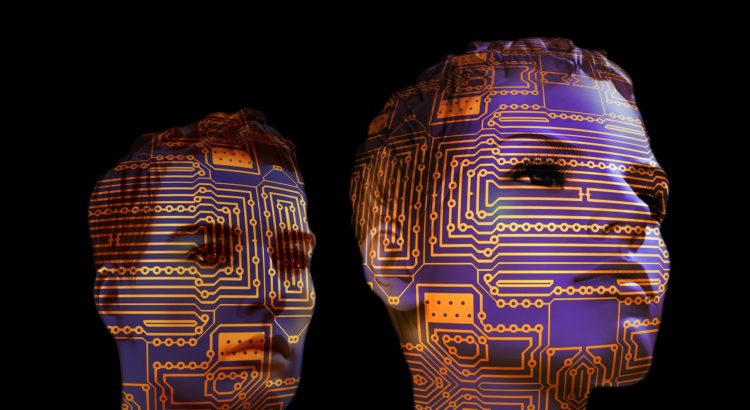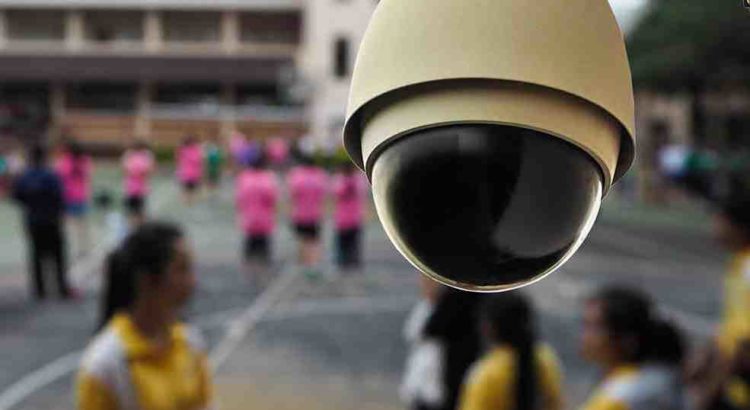By Henry A. Giroux
Editor’s note: A shorter version of this piece appeared in CounterPunch.
It is impossible to imagine the damage Trump and his white nationalists, economic fundamentalists, and white supremacists friends will do to civil liberties, the social contract, the planet, and life itself in the next few years.
Rather than address climate change, the threat of nuclear war, galloping inequality, the elimination of public goods, Trump and his vicious acolytes have accelerated the threats faced by these growing dangers. Moreover, the authoritarian steam roller just keeps bulldozing through every social protection and policy put in place, however insufficient, in the last few years in order to benefit the poor, vulnerable, and the environment.
A neo-fascist politics of emotional brutality, militant bigotry, and social abandonment has reached new heights in the United States. Think about the Republican Party call to eliminate essential health benefits such as mental health coverage, guaranteed health insurance for people with pre-existing conditions, and the elimination of Meals on Wheels program that benefit the poor and elderly.
As the Trump regime continues to hollow out the welfare state, it builds on Obama’s efforts to expand the surveillance state but with a new and deadly twist. This is particularly clear given the Congressional Republicans’ decision to advance a bill that would overturn privacy protections for Internet users, allow corporations to monitor, sell, and use everything that users put on the Internet, including their browsing history, app usage and financial and medical information.
This is the Orwellian side of Trump’s administration, which not only makes it easier for the surveillance state to access information, but also sells out the American public to corporate demagogues who view everything in terms of markets and the accumulation of capital.
On the other side of the authoritarian coin is the merging of the punishing society and permanent warfare state with a culture of fear and cruelty. Under these circumstances, everyone is viewed as either a potential terrorist or narcissistic consumer making it easier for the Trump machine to elevate the use of force to the most venerable national ideal while opening up lucrative markets for defense and security industries and the growing private prison behemoth.
At the level of everyday life, the merging of corporate and political brutalism into a war culture were on full display in the savage beating of a United Airlines passenger who refused to give up his seat because the airlines over booked. Couple this with the Star War spectacle of the United States dropping a 21,600 pound non-nuclear bomb on the Achin district in Afghanistan, which has a population of around 95,000 people. Nobody on the plane came to the aid of the passenger as he was being assaulted and dragged from his seat as if he were a dangerous criminal suggesting that brutality, fear, and powerlessness have become normalized in America.
Moreover, the relative silence of the American public in the face its government dropping the “Mother of All Bombs” in Afghanistan and unloading endless weapons of death and destruction in Syria testify to the amnesiac state of the country and the moral coma which has settled like a dense fog on so many of its inhabitants. As historical memory is erased, public spheres and cultural spaces are saturated with violence and the endless spectacles of civic illiteracy. Pedagogies of repression now enable the suffering produced by those most vulnerable, who disappear amidst the endless trivialization produced by the mainstream media, which anxiously awaits for Trump’s next tweet in order to increase their ratings and fuel the bottom line.
The government propaganda machine has turned into a comic version of a failed Reality TV series. Witness the daily spectacle produced by the hapless Sean Spicer. Spicer dreams about and longs for the trappings of Orwell’s dystopia in which he would be able to use his position as a second rate Joseph Goebbels to produce, legitimate, and dictate lies rather than be in the uncomfortable scenario, in which he now finds himself, of having to defend endlessly Trump’s fabrications. For Spicer, the dream of the safety of Orwell’s dystopia has given way to the nightmare of him being reduced to the leading character in the Gong Show. Actually, maybe he is the confused front man for our stand-in-president who increasingly resembles the psychopath on steroids, Patrick Bateman, from the film, American Psycho—truly a symbol for our times. Ignorance is a terrible wound, when it is the result of systemic constraints or self-inflicted, but it is a pathology and plague when it is willful—the active refusal to know- and translates into power. Trump and his mostly incompetent and ignorant government appointees are not just stupid and offensive in their ideological smugness, they are a threat to the very act of thinking and its crucial connection to memory, justice and truth.
Neo-fascist policies and practices now feed a war culture and demand more than a political and moral outrage. At the very least, it must be recognized that neo-fascism must be restored as Paul Gilroy has argued “to its proper place in the discussions of the moral and political limits of what is acceptable.” This would suggest making visible not only the elements of neo-fascism that animate the new policies and political formations being produced in the Trump administration, but also unveiling how power is reproduced through those architects, managers, and intellectuals and institutions for hire that legitimate this distinctively American neoliberal-military machine.
The supine response of the mainstream press and the general public to ongoing acts of state and corporate violence is a flagrant and horrifying indication of the extent to which the United States government has merged the corporate state with the military state to create a regime of brutality, sadism, aggression, and cruelty. State sovereignty has been replaced by corporate sovereignty. All the while, militarized ignorance expands a culture awash in public stupidity and views critical thought as both a liability and a threat making it all the more difficult to recognize how authoritarianism appears in new forms.
The established political parties and politicians are nothing more than crude lobbyists and shock troops for the financial elite who believe everything is for sale. The boundaries of humanity are now inscribed and defined exclusively through the metrics of the twin logic of commercial transactions and the politics of disposability. The horrors unfolding under the Trump administration are not only abetted by white supremacists, religious evangelicals, but also by liberals who still believe that capitalism and democracy are synonymous, and who appear to delight and rush to support any military intervention or act of aggression the United States wages against a foreign power. Liberals are affronted over alleged charges of Russian spying but say nothing about their own country which does far more than spy on other countries it disagrees with, it overthrows them through either illegal means or military force.
Trump’s brand of authoritarianism is a combination of the savagery of neoliberalism and civic illiteracy on steroids. This legacy of neo-fascism represents more than a crisis of civic literacy and courage, it is a crisis of civic culture, if not politics itself. As civic culture wanes, a market based ideology increases its grip on the American public. This militant ideology of sadism and cruelty is all too familiar and is marked by unbridled individualism, a disdain for the welfare state, the elevation of unchecked self-interest to an organizing principle of society, the glorification of militarism, and a systemic erosion of any viable notion of citizenship.
This ideology has produced over the last forty years an agency killing form of depoliticization that paved the way for the election of Donald Trump and an updated version of American authoritarianism. This homegrown and new edition of neo-fascism cannot be abstracted from the cultural spectacles that now dominate American society and extend from the trivializing influence of celebrity culture and the militarism of video game culture to the spectacles of violence that dominate Hollywood and the mainstream media.
The new technologies increasingly lock people into orbits of isolation and privatization while the wholesale deformation of the formative cultures and public spheres that make a democracy possible disappear at a terrifying pace. Neo-fascism feeds on the spectacle, a misplaced populism, and a “mood economy” that reduces all problems to matters of self-blame and defective character. Under such circumstances, the militarization of society expands more readily and reaches deeply into everyday life producing militarized subjects, exalting military-style discipline, criminalizing an increasing range of social behaviors, transforming local police into paramilitarized soldiers, and normalizing war and violence. Rather than viewing war and militarization as a source of alarm, they become sources of national pride. The curse of the theatrical performance so endemic to fascism has been updated with the Internet and new digital technologies and allows the legacies of fascism to live on in a distinctively American modality.
The war culture must be stopped and hopefully more and more efforts will be made in the name of collective struggle to think anew what an effective form of resistance might look like. Any struggle that matters must acknowledge “that eradicating racial oppression ultimately requires struggle against oppression in all of its forms… [especially] restructuring America’s economic system.”
There is no shortage of diverse movements operating in multiple spheres that extend from the local to national levels. Some aim at winning general elections, conduct sit-ins, or engage in direct action such as blocking the vehicles of immigration officers. Others provide support for sanctuary movements that include institutions that range from churches to institutions of higher education. Many of these movements do not call for a qualitative change in fundamental institutions of power, especially in the economic realm, and as such offer no long term solutions. But, no viable form of collective struggle will succeed if it fails to link resistance efforts among the local, state, federal, and international spheres.
There are a wealth of strategies available that contain the possibility of becoming more radical, capable of merging with other sites of resistance, all of which look beyond tactics as diverse as organizing massive protests, direct resistance, and rebuilding the labor movement.
Martin Luther King, Jr. in his speech at the Riverside Church spoke eloquently to what it meant to use non-violent, direct action as part of a broader struggle to connect racism, militarism, and war. His call to address a “society gone mad on war” and the need to “address the fierce urgency of now” was rooted in an intersectional politics, one that recognized a comprehensive view of oppression, struggle, and politics itself. Racism, poverty, and disposability could not be abstracted from the issue of militarism and how these modes of oppression informed each other.
This was particularly clear in a program put forth by The Black Panther Party, which called for “equality in education, housing, employment and civil rights” and produced a 10 Point Plan to achieve its political goals. A more recent example of a comprehensive notion of politics and can be found in the Black Lives Matter movement’s call to connect police violence to wider forms of state violence, allowing such a strategy to move from a single-issue protest movement into a full-fledged social movement.
Such struggles at best must be about both educating people and creating broad-based social movements dedicated not merely to reforms but transforming the ideological, economic, and political structures of the existing society. Social transformation has to be reconnected with institutional change. This means rejecting the notion that global capitalism cannot be challenged successfully at any of these levels alone, especially if such resistance, however crucial, is not connected to a comprehensive understanding of the reach of global power. Lacino Hamilton is right in arguing that “institutional patterns and practices will not change unless protesters go beyond rallying, marching, and what usually amounts to empty slogans. “The function of activists,” he writes, “is to translate protest into organized action, which has the chance to develop and to transcend immediate needs and aspirations toward a radical reconstruction of society.”
Clearly, resistance to this impending and ongoing reality of neo-fascism is more urgent than ever and necessitates challenging not only the commanding structures of economic power but also those powerful cultural apparatus that trade in the currency of ideas. A formidable resistance movement must work hard to create a formative culture that empowers and brings together the most vulnerable along with those who inhabit single issue movements.
The power of such a broad-based movement could draw inspiration from the historically relevant anti-war, anti-racist, and civil rights movements of the sixties and the ACT UP movement of the late eighties. At the same time, current social movements such as Podemos in Spain also offer the possibility of creating new political formations that are anti-fascist and fiercely determined to both challenge authoritarian regimes such as the Trump regime and dismantle the economic, ideological, and cultural structures that produce them. What all of these movements revealed was that diverse issues ranging from the war abroad to the racist and homophobic wars at home were symptomatic of a more profound illness and deeper malady that demanded a new understanding of theory, politics, and oppression.
There is certainly something to be learned from older proven tactics such as using education to create a revolution in consciousness and values along with broad-based alliances to create the conditions for mass disruptions such as the use of the general strike. Such tactics combine theory, consciousness and practice as part of a strategy to paralyze the working of this death dealing machinery of casino capitalism and its recent incarnation in the Trump administration.
One of the most powerful tools of oppression is convincing people that the conditions of oppression they experienced are both normal and cannot be changed. At the same time, this oppressive ideology of normalization prevents any understanding of the larger systemic forces of oppression by insisting that all problems are individually based and ultimately a matter of individual character and responsibility. Dominant ideology spread its message through a range of cultural apparatuses extending from the schools to the mainstream media. The message was generally the same in that it insisted that there are no structures of domination only flawed individuals solely responsible for the problems they experience and that the system of capitalism as a whole was organized for their own good. The sixties produced a range of critical thinkers who challenged this central element of oppression, and included Herbert Marcuse, Malcom X, W. E. B. Du Bois, James Baldwin, Robin Morgan, and Susan Willis to brilliant theorists such as Stanley Aronowitz, Mary Daly, Louis Althusser, Pierre Bourdieu, Zygmunt Bauman, and many others. For them structures of domination were rooted in both subjectivity itself as well as in larger economic apparatuses.
Those who believe in a radical democracy have got to find a way to make this regime ungovernable. Planting seeds and local actions are important, but there is a more urgent need to educate and mobilize through a comprehensive vision and politics that is capable of generating massive teach-ins all over the United States so as to enable a collective struggle aimed at producing powerful events such as a nation-wide boycott, sit-ins, and a general strike in order to bring the country to a halt.
The promise of such resistance must be rooted in the creation of a new political party of democratic socialists, one whose power is rooted in the organization of unions, educators, workers, young people, religious groups, and others who constitute a popular progressive base. There will be no resistance without a vision of a new society and new mechanisms of resistance. In this instance, resistance registers as a form of total paralysis for the financial elite, religious fundamentalists, and neo-conservative warmongers. In doing so, it gives birth to what we might term a politics of ungovernability.
America now chokes on its claim to innocence. Up until now, it has been successful in both evading that fact and covering up its lies—lies about its history, about social mobility, about freedom, about justice, about the end of racism, about the value of meritocracy, about spreading democracy abroad, and so it goes. The era of hiding behind this mythical innocence has passed. In the age of Trump, the raw brutality of casino capitalism, with its highly visible acts of violence against all aspects of ethical and political decency, is enacted without apology.
A moral political coma now drives an authoritarian society that embraces greed, racism, hatred, inequality, stupidity, disposability, and lawlessness, all of which are celebrated as national virtues. The dark present is now the endpoint of a history of violence and barbarism that can no longer be camouflaged, in part, because it is unapologetic about the viciousness of its practices and the savagery of its effects. I want to hope that this moment of unmitigated violence, this period of punitiveness, and era of unimaginable cruelty will provoke people to wake up from the nightmare that has befallen the American public. Hopefully, in that wakefulness, in a resurgent act of witnessing and moral outrage will grow and provide the basis for a new kind of politics, a fierce wind of resistance, and a struggle too powerful to be defeated.










 Users Today : 98
Users Today : 98 Total Users : 35402398
Total Users : 35402398 Views Today : 108
Views Today : 108 Total views : 3331415
Total views : 3331415